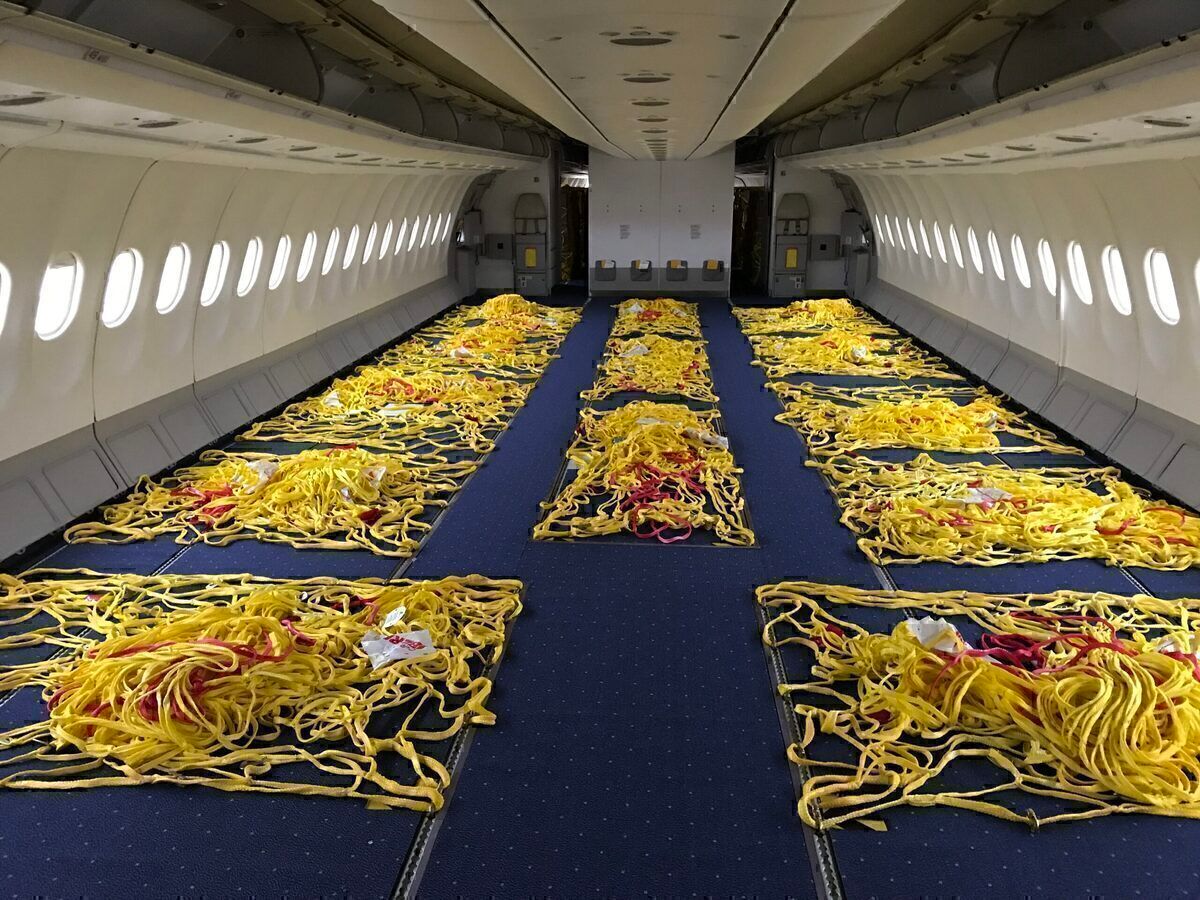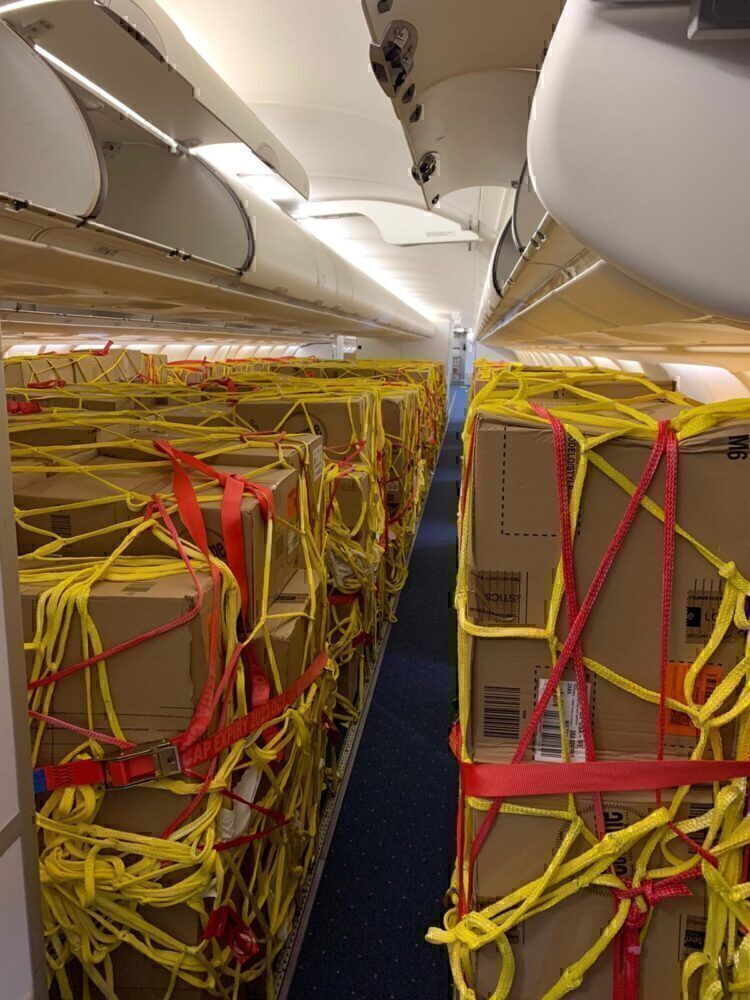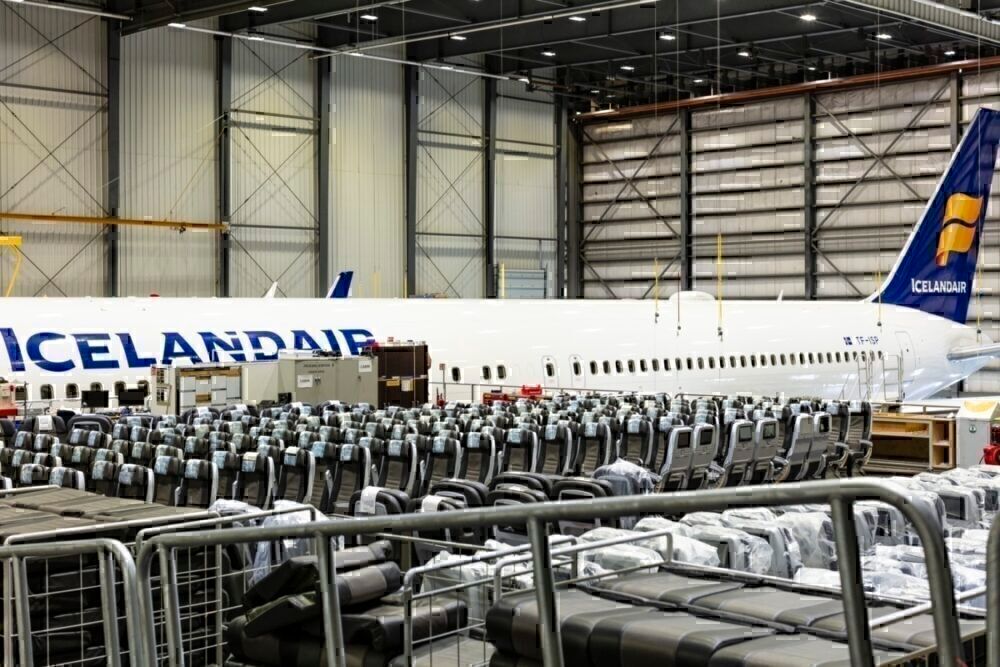IAG airline Iberia has undertaken its first passenger to freight conversion, taking the seats out of an Airbus A330-300 in response to market demand. The ‘preighter’ will fly between Madrid and Los Angeles four times a week, using nets to secure the cargo onboard. The announcement comes just a day after the International Air Transport Association (IATA) warned against the limited shelf life of high cargo yields.
Iberia’s first preighter conversion
Spanish airline Iberia has completed its first passenger to freight conversion, taking the seats out of an Airbus A330-300 to make room for cargo in the passenger cabin. The so-called ‘preighter’ conversion has become a unique characteristic of the impact of the pandemic, with numerous other airlines undertaking similar conversions.
For Iberia, it was it's own in house MRO team who undertook the conversion. Iberia MRO, using Airbus guidelines, removed the economy and premium economy seats, as well as the crew rest from the A330 and the bulkhead panels. Cargo nets will be used to secure the goods in flight, attached to the floor rails previously used to anchor the seats.
Overall, the conversion gives the A330 some 105 m3 and 18,000 kg of additional carrying capacity. Iberia’s sales chief María Jesús López Solás commented on the conversion, saying,
“We’re expecting an increase in air freight demand in coming months and this in an opportunity we should try to seize. Under today’s circumstances we must adapt better than ever to market demands, and this operation will help diversify our income streams while keeping our staff active.”
The A330 has already arrived in Los Angeles from Madrid and is scheduled to operate a four times a week service between the two cities throughout November.
Stay informed: Sign up for our daily aviation news digest.
A bit late to the party?
While it’s always interesting to see a passenger to freight conversion in the mix, the first preighters were coming to light some six months or more ago. While Iberia is clearly pleased with the move, you’ve got to wonder if the airline arrived at the party a little bit late.
The cargo market is currently at a deficit in terms of capacity, while demand for services is as high as ever. This imbalance in supply and demand makes it an airlines’ market, with shipments attracting far higher fees than would usually be the case.
But all good things must come to an end. As passenger traffic begins to recover, and belly hold space starts to come back online, the potential for profit from cargo operations will begin to slim down. Speaking at an IATA press briefing, Chief Economist Brian Pearce said that the lucrative cargo market probably only has another six to 12 months left to run. He said,
“Cargo historically has been 15% of airline revenues. It’s probably 20 to 25% for many airlines at the moment. That’s partly because of the shortage [of cargo capacity] and the impact that that's having on yields, because the capacity’s so short, yields are very good.
“That's not going to stay that way, we'll see more capacity coming onto the market because of conversions because of deliveries. Hopefully, as we see testing opening up markets, we'll see more passenger aircraft coming back, so I think that will bring those yields down.
“Cargo will not be as profitable as it is today … it’s something that we're going to see for the next six to 12 months but probably not long term.”
Of course, the peak season for cargo is between now and the New Year, so perhaps Iberia is hoping to cash in on some of that holiday season demand. Whether it pays off will be seen in good time.



